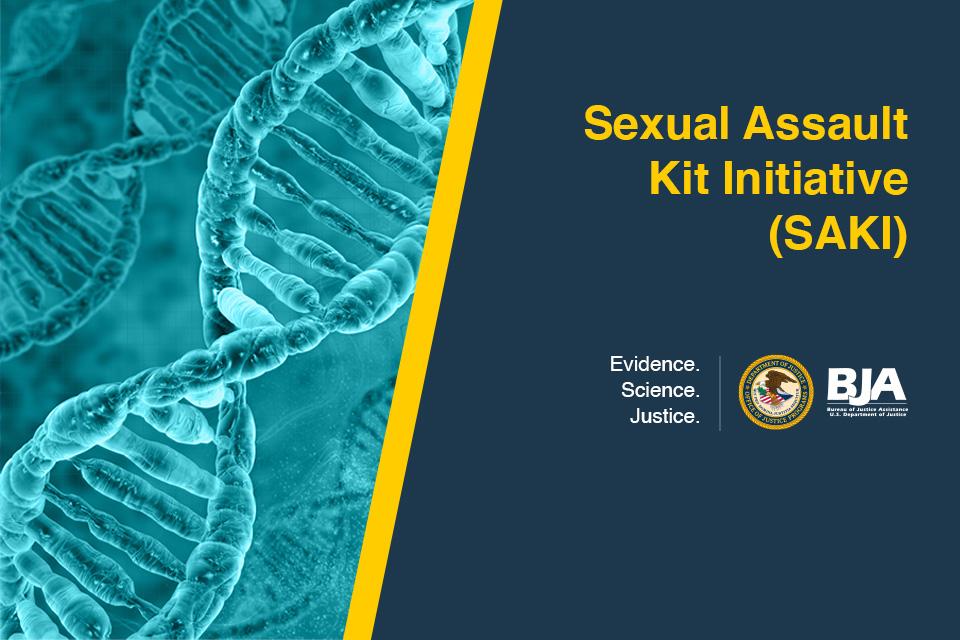Archival Notice
This is an archive page that is no longer being updated. It may contain outdated information and links may no longer function as originally intended.
Achieving Justice for Sexual Assault Survivors in Georgia
At the Bureau of Justice Assistance (BJA), staff work all year to deliver justice to sexual assault survivors through the National Sexual Assault Kit Initiative (SAKI).
SAKI is a vital program that helps give voice to survivors of sexual assault and brings violent offenders to justice by providing funds to process unsubmitted sexual assault kits. Unsubmitted sexual assault kits pose a challenge to many law enforcement agencies nationwide that lack the resources and capacity to process them. This means that crucial DNA evidence—evidence that could be used to solve cold cases and prevent future assaults—is unknown to investigators.
Since its inception, SAKI has helped jurisdictions across the country in closing sexual assault cases by testing more than 85,700 sexual assault kits, which has led to more than 1,640 convictions. This month in our Justice Today podcast, BJA highlighted the SAKI-funded effort in Dougherty County, Georgia, that helped put a man who committed multiple rapes behind bars after 13 years of terrorizing marginalized women.
The assaults began in 2004 when a then 31-year-old man coerced a 19-year-old woman into his vehicle and drove to a secluded area, where he physically attacked and sexually assaulted her. Due to a lack of resources to process sexual assault kits and link alleged assailants with victims, law enforcement was unable to apprehend him quickly, and he started a 13-year violent spree of sexual assaults on vulnerable victims.
"All those victims reported the sexual assault and received a forensic medical exam. We know that they had those exams. We know that DNA was collected and that DNA profiles were developed. But there's little indication of ongoing or thorough investigations in those cases. There was no contact with victims," said Amy Hutshell, program director for the Sexual Assault, Child Abuse and Human Trafficking Unit Criminal Justice Coordinating Council of Georgia.
Things began to change in 2016 when a new Georgia law required sexual assault kits to be sent to a crime lab. With the new law in place and the availability of SAKI funding, staff in Georgia got to work. The state submitted approximately 3,000 untested kits and uploaded the data into a national DNA database for criminal investigations. These kits had been sitting on hospital shelves unprocessed for years. As a result of the statewide push to clear Georgia's backlog of submissions, six victims' kits identified Duane Jabaar Ballard as the individual potentially responsible for their rapes.
With this new information, the Georgia SAKI Task Force led the investigation and prosecution of Duane Ballard. In 2022, Ballard was convicted on six counts of rape, one count of attempted rape, seven counts of aggravated assault, one count of child molestation, and one count of attempted aggravated sodomy. Ballard was sentenced to life without the possibility of parole. His successful conviction finally brought justice to the survivors and their families.
SAKI programs exist in more than 25 states, representing approximately 58 percent of the U.S. population. In addition to helping close rape cases, grantees can use SAKI funds on other unsolved sexually motivated crimes. The team in Georgia was also able to identify, through forensic genetic genealogy, a Jane Doe victim of Samuel Little, the most prolific serial killer in U.S. history. The Jane Doe victim went missing in 1977 and remained unidentified for more than 40 years.
"The SAKI project has encouraged the innovative uses of techniques such as forensic genetic genealogy and provides incredible resources and education in forensic genetic genealogy," Hutshell said.
To learn more about this story, listen to his interview on the Justice Today podcast.



